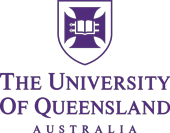
The University of Queensland

The University of Queensland is a pace-setter in discovery and translational research, and is committed to teaching excellence and outstanding mentorship that leads to well-rounded graduates who are equipped to live and work effectively in a global environment. UQ is a global top 50 university and Queensland’s biggest.
Links
Displaying 1061 - 1080 of 2964 articles

Sometimes the only way to tell the difference between a baby dinosaur and a grown-up one is to find fossils of them both together.

Many Indigenous people tell us they find hospitals stressful, uncomfortable and alienating. Here’s how good design can help.

The survival of the apostrophe is vital to the comprehensibility of our language. If those who have protected it are hanging up their red pens, it’s time we all do our bit.

Angka kematian orang yang berkampanye untuk melindungi lingkungan naik tiga kali lipat selama 15 tahun terakhir.

Australia’s threatened birds have declined by 59%, on average, between 1985 and 2016 based on 400,000 surveys at more than 17,000 locations according to Australia’s world-first Threatened Bird Index.

There is a negative feel to many of the shortlisted contenders for The Macquarie Dictionary’s Word of the Year.

It’s not always easy to work out where Aboriginal remains came from, but science can help.

Nous avons demandé à cinq experts si les médias sociaux étaient dommageables pour les enfants et les adolescents. Quatre sur cinq ont répondu oui.

Bigger penalties for pirating plants could help encourage growers to develop new varieties.

Rasa kesepian meningkat risiko kematian lebih besar dibanding pola makan buruk, obesitas, konsumsi alkokhol dan kurangnya olahraga, dan sama berbahayanya dengan merokok berat. Mari kita saling bicara.

What’s most concerning is children are being charged in out of home care for unnecessary and avoidable offences. We need to do a better job of placing children safe environments.

Prominent GP and former MP Kerryn Phelps has weighed into the doctor-pharmacist turf war, saying pharmacists shouldn’t prescribe because of their financial interests. But the evidence says otherwise.

La nouvelle œuvre de Philippe Grandrieux, installée à Hongkong, nous permet de saisir les événements qui s’y déroulent différemment et nous met en contact avec notre humanité universelle.

A new study highlights the importance of the ‘intergroup sensitivity effect’ in comedy, which gives people license to tell certain jokes, but not others.

Loneliness is a bigger cause of death than a poor diet, obesity, alcohol consumption, and lack of exercise, and it’s on a par with heavy smoking. So let’s get talking about it.

From wage growth to renewable energy to religion, projections are being treated as predictions. We’d be better off insisting on genuine forecasts.

The institution of chieftaincy in Ghana must be involved if illegal mining is to be curbed

Defining what this disease is and who has it has helped those investigating the outbreak understand what caused it.

Laws on boycotts already exist, but their aim was never to target consumer groups.

M. Stanley Whittingham was one of three scientists who won the 2019 Nobel Prize in Chemistry for their work developing lithium-ion batteries – used to power mobile phones, laptops and electric cars.
